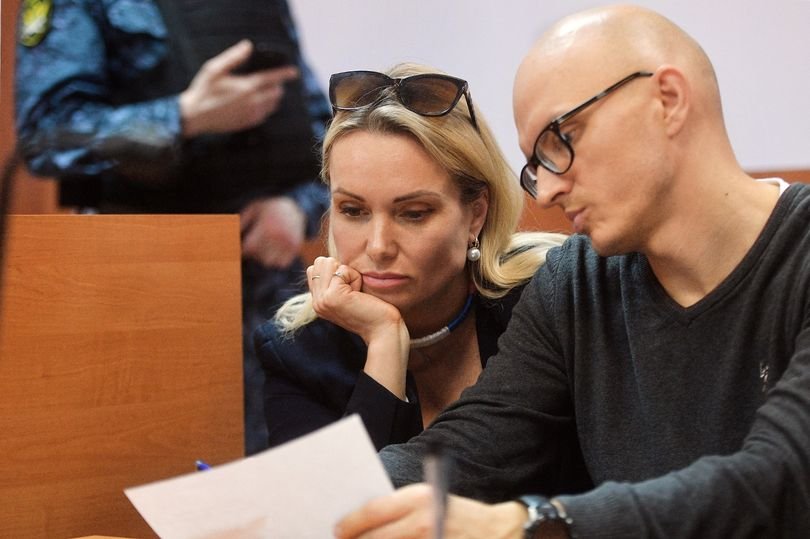Marina Ovsyannikova Says Channel One Journalists are "Scared"

The Russian journalist who disrupted a TV news show to protest Putin's invasion of Ukraine says her colleagues are scared and that she doesn't regret her actions one bit.
Marina Ovsyannikova conducted an on-air protest against Russia President Vladimir Putin's war on Monday March 14, 2022 (Image: Kommersant Photo Agency/REX/Shutterstock)
During a live broadcast last week, a 43-year-old television journalist held up a banner decrying the aggression in Ukraine, writing "No War" and "They are lying to you."
"My colleagues are scared," she told VOA. “The heads of Channel One forbade them to discuss this incident. Several colleagues quit, the rest — continue to work. They need to feed their families; they cannot find other work in such a difficult time. Because of Western sanctions, people have become real hostages of the difficult economic situation in Russia,” she added.
Ovsyannikova declined an asylum offer from France after she staged a protest to challenge the Kremlin's account of the invasion. She was fined $290 for posting a video on YouTube criticizing the invasion, but her lawyer said more serious charges could be filed against her.
TASS reports that the Investigative Committee of the Russian Federation has launched an investigation into her actions.
The daughter and son of Ovsyannikova are both 17 years old. Her lawyer told VOA: “During the detention she was treated with respect, they were polite, they did not use physical force.” She was held for 14 hours but was denied a lawyer even though she demanded legal representation “about 20 times,” Gashinsky said.
Russian prosecutors have also filed a lawsuit against YouTube star Alexander Nevzorov, who has more than 1.6 million subscribers, accusing him of deliberately spreading false information about the war in Ukraine. In an open letter to Russia's top investigator, Alexander Bastrykin, Nevzorov called the investigation "ridiculous." The inquiry focuses on Nevzorov's Instagram posts about Russian artillery shelling a maternity hospital in the besieged Ukrainian port town of Mariupol.
The case against Nevzorov is meant to send a message to Russian journalists that "the regime will not spare anyone."
Increasingly, Russian authorities are trying to stifle any independent reporting on the war or any coverage that challenges the Kremlin's version of events in Ukraine, say Russian journalists.
Earlier this week, the Russian parliament passed amendments to the Criminal Code that would expand a new law on spreading falsehoods to allow authorities to prosecute those found to have spread false information about state institutions abroad.
This week, a Moscow court granted prosecutors' request to label Meta an "extremist" organization, and Russia's federal censor instructed media organizations to remove the logos of Meta, Facebook, and Instagram. All three are now blocked on Russian internet, along with Twitter. Euronews is also blocked.
Almost all foreign news organizations have pulled their correspondents from Russia, and Russia's few remaining independent digital news outlets have also fled.
It was announced this week that Dmitry Muratov, editor of the independent newspaper Novaya Gazeta, who won a Nobel Peace Prize last year, will auction his medal and donate the proceeds to a charity that supports Ukrainian refugees. According to the paper, the Kremlin should stop combat fires, exchange prisoners, release bodies of the dead, provide humanitarian corridors and assistance, and support refugees.
Svetlana Prokopyeva, a Russian investigative journalist, announced Tuesday that she had left Pskov and was now in Riga, Latvia. The international media and human rights organizations closely followed her case where she was found guilty of "justifying terrorism" in her reporting but received a fine instead of jail time. On March 18, her home was raided and she was handcuffed and forced to the floor. At a police station, she was questioned for allegedly spreading lies about the region's governor.

